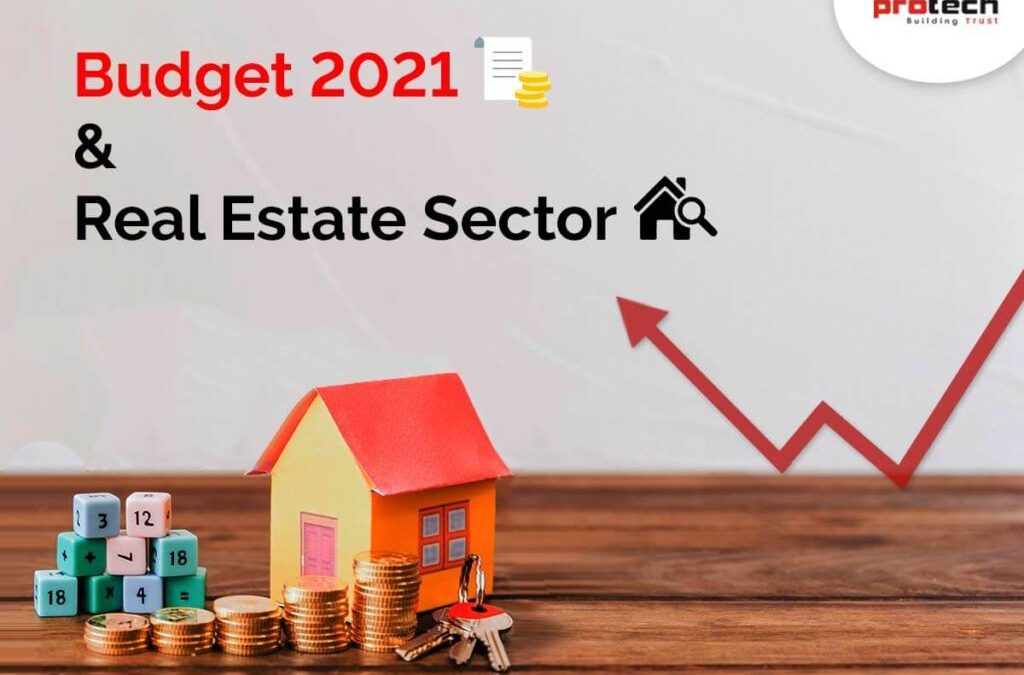Real estate is the 2nd largest employer in the nation and in this Protech blog, we will explore the implications of the current budget on the real state sector. In 2019-2020, the sector had to deal with a liquidity crunch. COVID-19 has further worsened the situation. The real estate marketers hope that budget 2021 will revitalize its shrinking market grasp and will lead to the revival of the sector as a whole.
Affordable housing, tax deduction on home loan interest, debt financing for REITs and InvITs, and a boost to infrastructure in Union Budget 2021-22 are expected to be the biggest gains for the real estate sector in India.
In total, the Ministry of Housing and Urban Affairs has allocated Rs 54,581 crore in the Budget 2021.
Here are some of the key highlights of the Union Budget 2021-22.
Affordable Housing
Most of the under-constructed residential projects of the Protech group in Guwahati are registered under the PMAY program. It should come as a relief for prospective homebuyers that the Central government is keen to continue with its goal of offering affordable housing in the coming year as well.
While presenting the budget, Finance Minister Nirmala Sitharaman said,
“This government sees ‘housing for all’ and affordable housing as priority areas. In the July 2019 Budget, I provided an additional deduction of interest, amounting to Rs 1.5 lakh, for a loan taken to purchase an affordable house. I propose to extend the eligibility of this deduction by one more year, until March 31, 2022″.
An additional deduction of Rs 1.5 lakh was also announced for the loans taken up till March 31, 2022, for the purchase of an affordable house.
Tax holiday for the affordable housing project
The budget also mentioned a tax holiday for the affordable housing project till 31st March 2022. Looking at the current crunch of supply of goods and material to the real estate sector, this move is expected to revitalize the supply line. This move has been welcomed by real estate developers, especially by those developers who mainly focus on providing affordable housing.
Increase in safe harbor limit for the primary sale of residential units
In order to incentivize home buyers and real estate developers, it is proposed to increase the safe harbor limit from 10% to 20% for the specified primary sale of residential units. This will allow a homebuyer to avert the additional tax if the actual transaction value is below the circle rate by up to 20%.
Push to Infrastructure development
The budget laid emphasis on infrastructure development in Tier-2 cities. Assam will be awarded Rs 34,000 crores to develop 1,300 km of roads across the state. To fund the infrastructure projects, the government will be launching a Development Financial Institution and will provide Rs 20,000 crores to capitalize the institution, with an aim to create a lending portfolio of Rs 5 lakh crores, in the duration of the next three years.
There’s a lot to look forward to in this budget, especially the announcement of Two new technologies, namely ‘MetroLite’ and ‘MetroNeo’ will be deployed in tier-2 cities and the peripheral areas of tier-1 cities, to boost connectivity at a lesser cost and the same experience. We must highlight here that Guwahati is a tier-2 city.
Metro routes in Guwahati will boost the economy by connecting distanced city areas such as North-Guwahati, which is resource-rich with commercial areas such as AT road or GS road.
Flexibility to REITs and InvITs
In the budget, the finance minister announced that the debt financing of Real Estate Investment Trust (REITs) and Infrastructure Investment Trusts (InvITs) will be enabled by making suitable amendments. Now it will become easier for such trusts to raise funds for acquiring infrastructure and real estate assets, thus, solving the cash flow issues in the sector.
Amenities for construction workers
Finance Minister proposed the launch of a portal that will collect relevant information on gig, building, and construction-workers among others. This will help formulate Health, Housing, skills, Insurance, Credit, and food schemes for migrant workers.
Further to promote the supply of affordable rental housing for migrant workers, the Finance Minister proposed to allow tax exemption for notified Affordable rental housing projects.
Conclusion:
Real estate will be among India’s strongest economic engines going forward. Any benefit the government extends to this sector will be felt manifold across the economy.
Protech Group hopes that these initiatives will allow buyers to get the complete benefit of affordable housing plans and gear up the real sector market for projects that can meet the aspiration of low-income and middle-income groups who are deemed as the lifeline of the economy.

